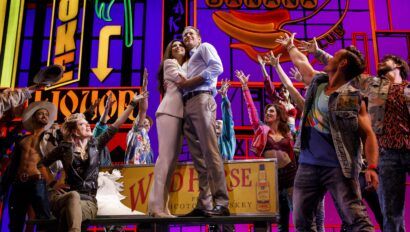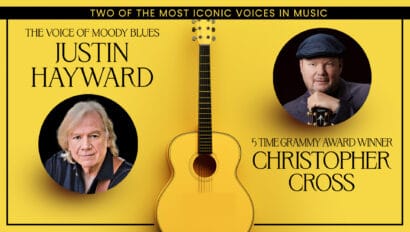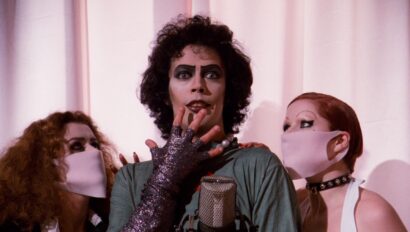Behind the Scenes with Diane Cotter and Elijah Yetter-Bowman of Burned: Protecting the Protectors
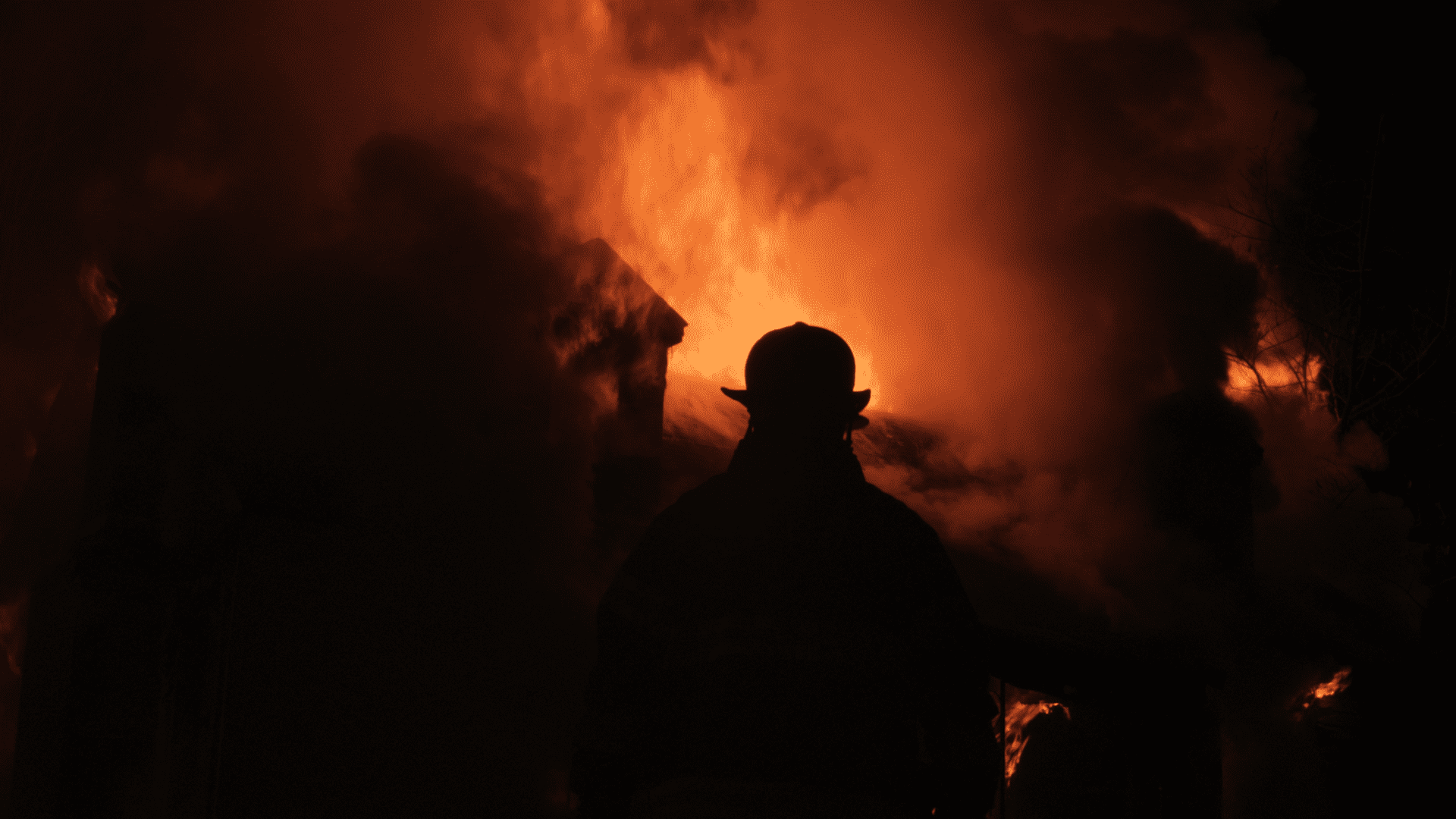
Sarah Garofalo spoke with Diane Cotter and Elijah Yetter-Bowman of Burned: Protecting the Protectors about the film, the Last Call Foundation, Ethereal Films and more! Read on for highlights from the interview, or listen to the full interview below. Tune in to Talk of the Commonwealth with Hank Stolz on WCRN 830AM Fridays at 9 AM and Saturdays at 1 PM for more behind-the-scenes interviews.
Sarah: Thank you for joining us on Behind the Scenes at The Hanover Theatre. This is Sarah Garofalo, and today I’m very excited to be talking to two very special guests. We are talking to Diane Cotter and Elijah Yetter-Bowman. We’re talking about the film screening and expert panel of “Burned: Protecting the Protectors,” coming to The Hanover Theatre on June 11.
Diane: Thank you.
Elijah: Thank you for having us.
Sarah: Thank you for joining us. We have a lot to talk about today. I want to take this opportunity and have both of you introduce yourselves and tell us more about what this whole event is going to be. There’s a lot happening on June 11.
Diane: I’m Diane Cotter. I grew up in Worcester. At that point in time, I was Diane DiBenedetto. I have a long history in this city, I love this city. It’s a big part of my life, it shaped me and The Hanover theatre helped shape me. In 1982, I married the love of my life, Paul Cotter. He was a Worcester firefighter for almost 28 years before he was diagnosed with career-ending cancer. Because of Paul’s routine of bodybuilding and being very health conscious, it was an absolute shock.
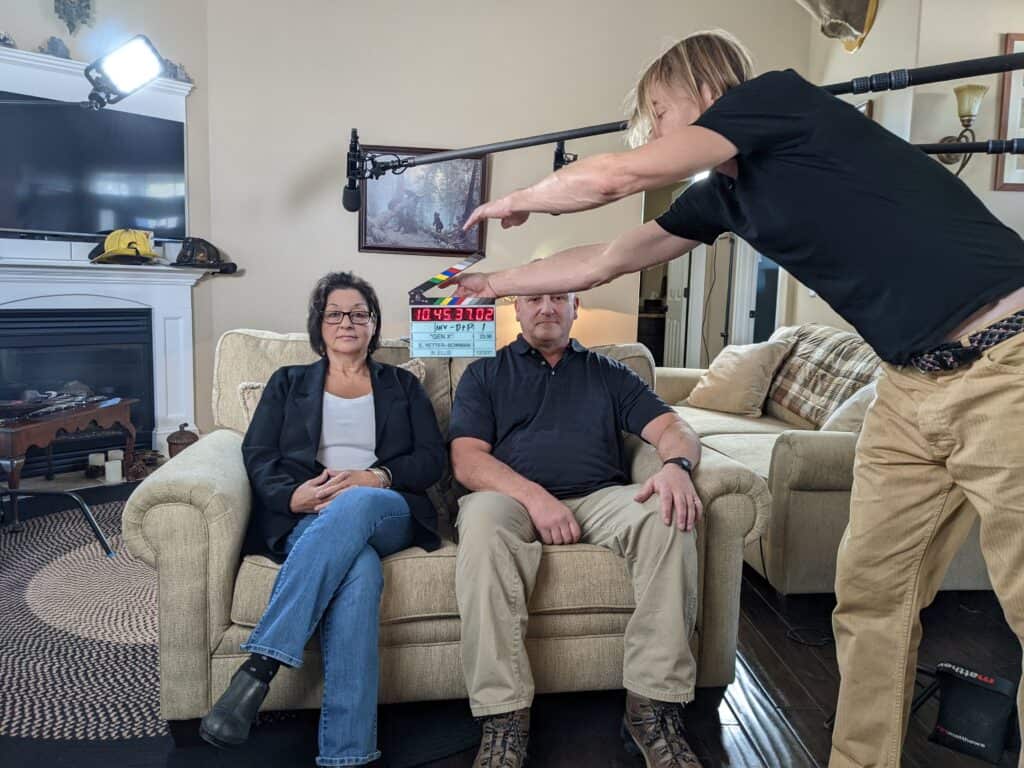
Diane: Paul had surgery and he suffered some post effects of the surgery that did not allow him to return to the love of his life, which is firefighting. His relapse into, what I can only call was, depression led me into a rabbit hole to find out why such a healthy firefighter would suffer such a debilitating cancer typically seen only in elderly men. That opened the rabbit hole.
Sarah: Thank you, Diane. It’s truly an amazing story. I’m very much looking forward to not only seeing the documentary, but hearing you speak at this event and I’m excited to talk to you today and hear more about your side of this whole experience. Elijah, I’d love for you to introduce yourself also.
Elijah: I’m Elijah Yetter-Bowman. I’m the founder of a media company called Ethereal Films. We strive to produce documentaries and other types of media that can have a real world impact generally on major societal problems. My background academically was focused in medicine and health research. It’s funny because the big project centered on the chemical family of forever chemicals, also known as PFAS, is what inevitably brought me to meet Paul and Diane several years ago. I was put in a position where I learned that the town that I grew up in had contaminated drinking water, due to being downstream of a massive industrial producer of these forever chemicals in our town. I only realized it about 40 years after the fact, and that sort of galvanized my interest. I was already very fascinated with chemistry and I decided to look further into this harmful class of chemicals to understand what could be done for people like me who are exposed to them. Long story short, throughout this process and working on a comprehensive film about that issue, we got to meet up with Paul and Diane at one of the national conferences on this topic. I think what Diane was revealing, through what began as what I would call a scientific suspicion, that firefighters faced a very unique occupational exposure to these very same chemicals from the gear that they need to wear to do their job.
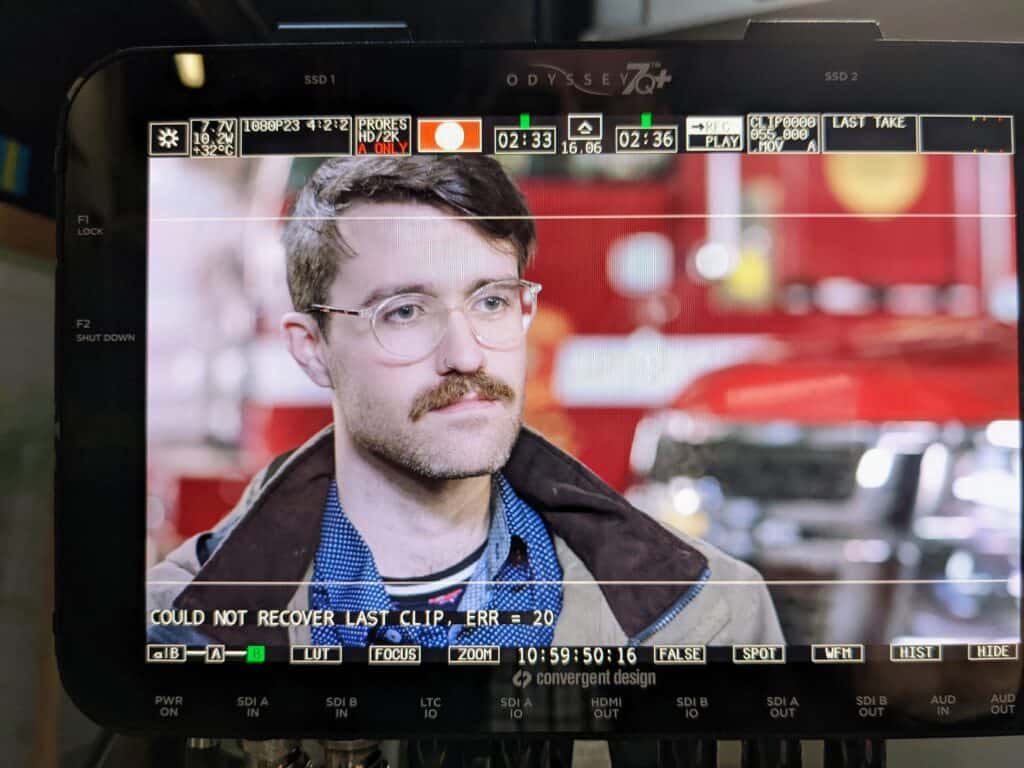
Director Elijah Yetter-Bowman
Elijah: That was a couple of years ago when we finally got to meet up and things started to work a little bit better for my organization for my company. We had the ability to come back up and visit them and do formal interviews at the quality that Diane story deserved, which inevitably became the film “Burned.” It was originally supposed to be part of our other documentary, but we realized that this was a message that was really not given to firefighters, that their protective gear was actively harming them, but they had not been told this. We had a moment where we realized we needed this to be its own story directly available to firefighters. In a nutshell, that’s why “Burned” exists. We’ve been just so happy and grateful to play such an important part. At the moment, there have been about 235 screenings scheduled across the world right now for the film and we just launched that ability like a month ago, so that number continues to grow every day.
Sarah: Wow. It’s such an important story that both of you are telling. I was very interested to hear about how you guys came across each other, so Elijah, thank you for explaining that. It’s interesting how your background ended up bringing you here. I want to talk a little bit about the event itself before we get into both of your connections to this a little bit further. Like I said, there’s a lot going on here on June 11. We’ve got a bunch of guest speakers coming. Before the event, we are having a pre-event performance by the Worcester Fire Brigade Pipes & Drum Band. There also is going to be a pre-show book signing by environmental attorney Rob Bilott. He will be signing his book “Exposure: Poisoned Water, Corporate Greed, and One Lawyer’s 20-Year Battle Against DuPont.” For those who are interested in that, there will not be copies of the books available for purchase at the show, but there is a link on our show page on our website for you to order the book in advance. For those who will be coming to this event and engaging in these events before the before the screening and the expert panel, can you talk us through the Pipes & Drum Band and the signing?
Diane: Sure. It was very important to me that we spotlight the Worcester firefighters, because of the strong history that the Worcester Fire Department and its members have in the city and in the greater Massachusetts area. When I hear the Fire Brigade band, I become very emotional because it takes me back to the December 3, 1999 memorials and those were those were some very dark days for us. Since that time, the band has been a very important part of our life and it’s just a beautiful tribute to the men and women of all Departments. We’re really excited to have them. We’re very excited to have Rob Bilott, who, if you’ve seen the movie “Dark Waters,” our executive producer Mark Ruffalo plays Rob Bilott. Rob took on a 20-year battle with DuPont. These same chemicals are what we’re battling as well. Rob is a huge part of this story and he’s been a huge part of our life since 2017. He’s focused on firefighters and it’s just an absolute blessing to have him with us on this occasion.
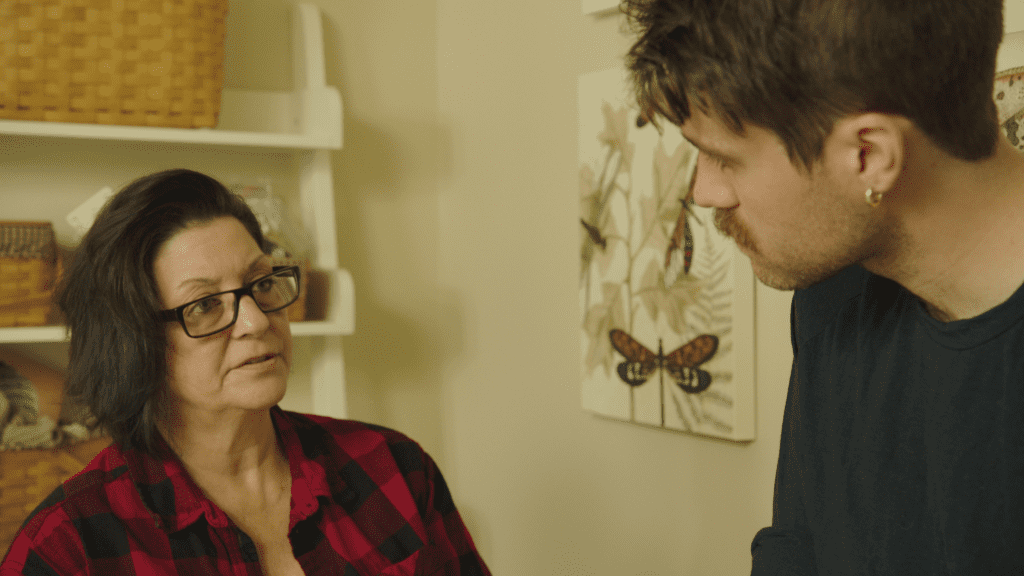
Sarah: Yeah, that’s absolutely wonderful. I’m sure it’s going to be extremely emotional that day. I think that the emotions will be high in that room and, what a place other than The Hanover Theatre to experience such a wonderful event. Diane, you did mention it a little bit previously, but you have a very interesting connection to The Hanover Theatre. Can you talk to us about that?
Diane: I’m so happy to. My father is described as an icon in the city of Worcester, and his name was Johnny Dee. And Johnny Dee managed the Poli Palace for 27 years and he met and married the love of his life, my mother, Patti Dee. They married at St. John’s Cathedral right there on Chatham Street. We grew up in Worcester. I grew up in Greendale in a three-decker. My mother and father had a very unique marriage. My father was a very gregarious person, and my mother was a very inward person. My father’s career as a theatre manager took him to some places that my mother was very uncomfortable being, she was extremely shy. They had one heck of a marriage. I grew up in The Hanover Theatre. My memories are magnificent. I can remember watching movies over and over again, so many times that I’ve learned everybody’s lines in the in the movies.
Sarah: I love that. Elijah, I want to turn it over to you for a second. You mentioned Ethereal Films, can we talk a little bit about that and how you got your start as a filmmaker?
Elijah: Yeah, sure. I have a kind of circuitous background, in terms of when I was little, I was a very creative, artistically driven person. One of the great privileges of my life is having two parents who are incredibly supportive of all of those aspirations. I was always involved in theater, and I worked on some big Hollywood film sets when I was a teenager, and I was a musician, all this fun stuff. My mother happens to have a very unusual and uncommon autoimmune disease. That basically decided, what I thought would initially be, to forego an artistic path and focus academically on medicine and how the human body works with the idea that maybe I could have some impact to come up with a way that is more effective in managing rare illnesses, like the one that my mother has. That was kind of an interesting full circle moment, to say, “Well, let me put everything creative on standby and focus on science.” It was just about five and a half years ago when I learned that the town I grew up in had been poisoned, and decided to take such a deep dive into these forever chemicals. I mean, that was the catalytic moment that I said, “Well, wait a minute. Actually, it seems like we need somebody who can manage both. Someone who can both understand the complexity of scientific issues like this, but also, then communicate it in a way that makes that information accessible to everybody.” Because if you grow up drinking contaminated water, and that can impact your health, you deserve to understand that and you deserve to know that. That shouldn’t be information that is reserved to people who have PhDs in chemistry, right? That doesn’t make any sense. So, it was actually that experience, that personal experience of realizing I grew up in a contaminated town, that drove me to launch Ethereal Films, initially to work on that documentary, and now we’ve made quite a few different projects and films as a result of that, trying to fulfill a niche that I observed a strong need for. I think there are limitations sometimes when we put ourselves in one particular silo or discipline. My friends in research and academia can tell you this a lot.
It can be really damaging to just talk to people who only focus on the same thing as you. Most of the beautiful things in life come from crossing disciplines and getting to know your neighbor who might do something totally different.
Elijah Yetter-Bowman
Elijah: I’m not a firefighter, but I’ve met so many because of all of this work and I feel like I really have been welcomed into this community. I feel like my life is way richer because of that. With Ethereal Films, we try to make our mark as something different. We love to cross those disciplines and we love to blend those things. From a scientific standpoint, I am so against the elitism that sometimes accompanies science; that you must have this degree or you must have gone to this school or done this in order to understand. That’s ludicrous, absolutely ludicrous. Every single person uses and employs science on a daily basis, whether they know it or not. Diane is one of the best examples of how far we can go with that ability.
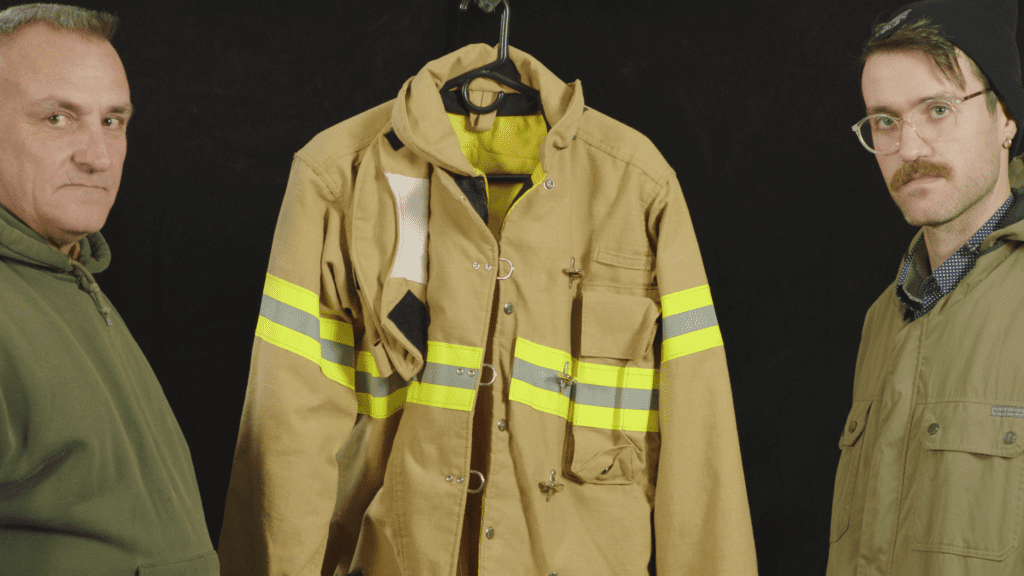
Sarah: You guys are just doing amazing, amazing work. This is really touching to hear both of you speak on it. I’m really looking forward to the event and hearing you speak more, Elijah, and just seeing the film. I think that our audiences are looking forward to this also. I want to talk a little bit more about the Last Call Foundation, because all the proceeds are benefiting the Last Call Foundation.
Diane: I can start and I’d love for Elijah to contribute. In 2018, when I had reached out to Dr. Graham Peaslee, the Nuclear Physicist of Notre Dame, who you’ll also see on our panel, along with the IAFF General President, Ed Kelly and of course, our Congressman Jim McGovern. I reached out to many because I needed funding for another study. What we found enough first testing of firefighter turnout gear was astronomical amounts of these chemicals. Prior to that, we had no idea that these carcinogens were in the gear and we were told they were trace amounts.
Because of the large amount of money that I needed, I couldn’t fund the study with bake sales, selling sweatshirts or holding any more yard sales. I had exhausted those options. I reached out to Kathy Crosby Bell, and she is the reason why we had the funding for the first ever study.
Diane Cotter
Diane: It’s quite a study. It really shocked the fire service and caught the attention of the science community. They’ve been instrumental in elevating this issue for us.
Sarah: Kathy Crosby Bell, the Founder, she will be at this event and she will be speaking. This is in honor of her son, Firefighter Michael Kennedy. Elijah, do you have anything to add about the Last Call Foundation?
Elijah: Diane is definitely more knowledgeable than I am, but Kathy has been a really critical role in this issue. Just like Diane said, that funding was essential in order to validate the original testing that Graham Peaslee conducted. It’s really amazing. You get to see this in the film as well, how Kathy basically said, “Absolutely, there’s clear merit to this. Why would we not pay for this?” Not to always go back to the topic of science, but this is one of the limitations that research runs into a lot and why science can be such a slow process, it gets a bad rap. I think this is a problem. In order to make research happen, and good research happen, it takes time and it takes money, and somebody has to be the initial funder. So, for Last Call to say, “Well, let’s not wait, let’s not require many years of grant submission process. Let’s just say here’s the money, go ahead and do it.” It was such an important decision. Every single second matters with this, literally, as we know now. What that study did is it validated the exposure that firefighters have been dealing with from their gear. I think it’s really fantastic that Kathy and her board were willing to say, “Yes, why would we wait? Let’s go ahead and do this.” I think it’s really awesome that this event can be a way to pay back tribute a little bit to the Last Call Foundation, who not only were instrumental in that work, on continuing work into PFAS research, but there’s a lot more that they have supported that I’m excited for that to come public and talk about more. They were also one of the initial grant funders, when we said, “Hey, I think that “Burned” needs to be its own film.” They were the first organization that said, “Okay, here’s some grant money, go ahead and make that happen.”
The Last Call Foundation has really been so critical in helping these things happen in a timely manner. I think it’s so fitting to let this event be a little bit of a fundraiser for them as well.
Elijah Yetter-Bowman
Sarah: Absolutely. I love the support that seems to be in this community and the connections that you all have amongst each other. It just seems wonderful. I’m really looking forward to hearing her speak, as well. You can read more about the last call foundation on the Show page on our website. As I mentioned, there’s quite a bit of information in there. You can see all of the speakers that will be here, you can read all about the Worcester Fire Brigade Pipes & Drum Band and the pre-show book signing. You can also watch the trailer for the film, which is up on our YouTube page. I would be remiss not to talk about your Executive Producer, Mark Ruffalo. Can you guys tell me what it was like working with him a little bit?
Elijah: The short is that we had sort of run in the same circles for a while. As Diane mentioned earlier in this conversation, he did star and help produce the film “Dark Waters,” which is fantastic. Everyone should watch it. I believe it’s on Netflix, currently. It’s sort of a dramatized version of Rob Bilott’s efforts of uncovering this class of chemicals. If you don’t know Rob Bilott really is the sole person alive who has been the most important in identifying this global health crisis that spans over a 70 year decade. Every single person on the planet is better off because of this man. Mark Ruffalo made a film about about his work. When we had started GenX, we had heard about the possibility of a film. We didn’t know it was “Dark Waters” at the time, or who was making it. Then it occurred to us after that film came out, that this is somebody who did this, who made this story and is trying to get it out to the world because he is so committed to the issue. Personally, I’m not a big celebrity person. It’s not really my thing. But, seeing how someone with such a large platform was latched on to the sole reason of this matters, it affects so many people and I want to help spread the word. We had thought, “Well, that is something that we absolutely have in common. We’re trying to get the word out, we’re trying to inform people and we’re trying to make a better society.” So, it was a long process.
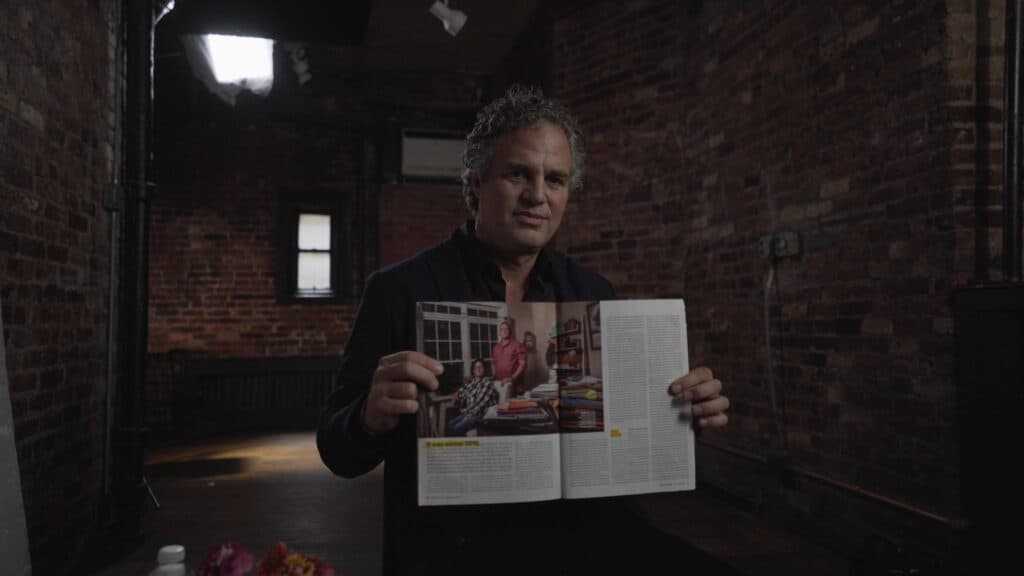
Elijah: Eventually, we were able to finally nail down a time, just this last year actually, where we could go up and film with Mark. Originally, that interview was actually pre-decision to make “Burned.” It was a pretty rushed encounter, but we spent a long time interviewing on just the topic of forever chemicals. Towards the tail end of the interview, we basically said, “Hey, just on the off-change you’ve heard of it, have you heard of this issue of turnout gear? The clothing the firefighters have to wear?” He’s like, “Hold up, wait a minute, wait a minute. One of my best friends has been a firefighter his entire life. This sounds super, super important. Can I do something for this?” As folks will see when they get to watch the film, there’s a very special message that Mark completely just impromptu word-vomited perfectly, so eloquent, “This is my message to the fire service.” Right there, you could see a spark light up in his eyes. He was like, “One of my closest friends is a firefighter. If what you’re saying is true, this is so significant and we need to get behind this.” We continue to stay in pretty close contact, and he’s a very busy guy. But, it’s so abundantly clear from my time with him that he’s just 100% committed to this issue and wants to do anything and everything that he can, despite having one of the craziest and busiest schedules in the world. Anything that he can to make things happen positively for this issue. Absolute sweetheart.
Sarah: I absolutely love that. That is so sweet. I was super excited to hear that his name was involved in this project. I hope that other people hear this story and are as touched as I am, and come out and see the film and hear what all of you have to say. As I said, it’s going to be a tremendous day, a tremendous evening with lots to hear. Before we wrap up, do either of you have any parting words or tidbits you want to add?
Diane: Sarah, I just want you to know that we are really excited for not just the fire community, but for the Worcester community and legislators and students and the university. This is a story about activism and building a network and overcoming some crazy odds. I can’t wait to share with you that The Hanover Theatre is featured prominently in the show “Burned” as well.
Sarah: Oh, yay! That will be exciting for everyone in the audience to see. One more question, if people want to watch “Burned” again after this screening, where can they watch that?
Elijah: Great question. We will formally announce our plans very soon. We’re having some talks with some big distributor folks. If there are firefighters who are interested in accessing the film or nonprofits or private groups, we do already have a request form set up. We’ve had quite a few that can just be found at our website, EtherealFilms.org/Burned. There’s an order form that can be submitted and I want to impress that any firefighter can request the film completely free of cost. That’ll be the fastest way. For anyone that just wants to watch the film, we’ll be making announcements very, very soon through social media, all these different channels on where they can find it.
Sarah: Perfect. If people would like to get in touch with you on social media, how can they reach out to you?
Diane: Diane is on Twitter at @di_cotter, and I’m public on Facebook.
Elijah: All the Ethereal Films social media accounts are just the same name, @Ethereal__Films. I believe we’re on Instagram and LinkedIn and Twitter. Folks can also reach out through our website, we have multiple ways of contact.
Sarah: Perfect. Once again, we have the film screening and expert panel of “Burned: Protecting the Protectors” here at The Hanover Theatre in Worcester on Sunday, June 11, at 6 PM. It’s going to be a wonderful, wonderful evening and you will get to meet these two incredible humans and hear what they have to say. Thank you so much for your time today. It’s been an honor to speak to both of you.
